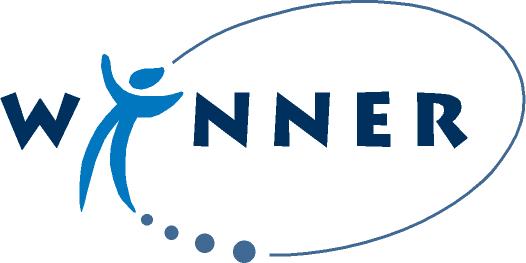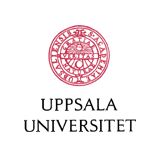|


Wireless IP
- Towards extreme spectral efficiency in wideband
packet data transmission for mobile users in 4G systems
Senior Researchers:
Mikael Sternad, UU
(Project coordinator) ,
Arne Svensson, CTH,
Mats Viberg, CTH,
Anders Ahlén, UU,
Tony Ottosson, CTH,
Anna Brunström, Karlstad University,
Tommy Svensson, CTH.
(CVs)
PhD Students:
Daniel Aronsson, UU,
Ming Chen, CTH,
Stefan Alfredsson,
KAU,
Annika Klockar,
KAU.
Academic external partners and Research collaborators:
Saverio Mascolo, Politecnico di Bari,
Torbjörn Ekman
UniK and U. of Trondheim, Norway,
Krister Norlund, Ericsson AB,
Sorour Falahati, Ericsson AB.
Industrial Partners:
Ericsson Research, Kista,
Ericsson, Göteborg.
We have participated within the EU IST Integrated Project
Wireless
World
Initiative
New
Radio
(WINNER)
and the follow-on Celtic framework project
WINNER+.
Our work within the SSF Wireless IP project and the
EU WINNER projects has now (2009) conluded, see the summary
below. Our project group continues in 2010 with a focus on multipoint
wireless transmission, with support by a Strategic research
grant from The Swedish Research
Council and the EU FP7 Integrated Project Artist4G.
Top of page
Summary:
The Wireless IP project focused on 4G wireless systems.
It was a collaborative research effort
involving researchers from
Uppsala University,
Chalmers University of Technology and
Karlstad University, funded by the Swedish Foundation
for Strategic Research (SSF) Information Technology program.
Industrial partners were Ericsson Research and Ericsson
in Göteborg.
Uppsala University acted as lead partner.
The objectives were to develop and to study algorithms
and system design
for future wireless packet data transmission
beyond 3G.
In particular, the objective of the program has been to
develop and explore a new
type of radio system based on
adaptive transmission.
Wireless IP
was initiated as a multi-university
research project within the SSF PCC
program in 2000.
It became a SSF IT program
funded by 10 MSEK
from mid-2002 to mid-2005, after which the program
received a 2.5 -year extension
funded by 5 MSEK from
mid 2006 to the end of 2008.
During 2002-2003, we performed
an intense design effort,
which resulted in the design and evaluation
of a downlink for an adaptive OFDM system.
The work discussed
and offered answers to the following questions:
- Can a balanced adaptive OFDM-based
downlink be designed
without too much overhead due to guard-bands
and control signaling? What multiuser scheduling
gains may be attained in such systems?
- What spectral efficiency may be expected by
using adaptive OFDM-based downlinks in a multicellular
system?
- What are the most promising
ways to integrate multi-antenna
transmission with adaptive transmission, so that
reinforcing advantages are created?
- What are the effects of realistic prediction
errors on the attainable performance if the
terminals move at vehicular velocities, and
the link adaptation design takes the prediction
uncertainty into account?
In mid-2004, the
results obtained were very promising.
The Wireless IP constellation was at this point invited to
continue the system design effort
in collaboration with the main European
effort aiming at new radio systems beyond 3G,
the
EU WINNER projects.
These projects, with 40 industrial and academic partners,
have defined a flexible wireless broadband system concept.
They have been a crucial venue for pre-competitive
research and consensus building for 4G (IMT-Advanced)
wireless systems. We have taken leading roles within these
projects, e.g. on MAC layer design and multiple access techniques.
The fundamental research results of the Wireless IP project
have in various ways been integrated into the WINNER system
concept,
spanning channel adaptive predictive scheduling,
advanced link adaptation, the
use of orthogonal OFDM signaling for
adaptive transmission
and the use of interference avoidance
between base stations.
The WINNER concept lead, in its turn, to standardization
in the form of the 3GPP LTE standard and its ongoing
development ``LTE-advanced''. Adaptive OFDM
systems are now destined to become the dominant wireless
broadband technology of the future.
Our work has been published in two book chapters
and 17 Journal papers, of which three are in a Special Issue
on adaptive transmission by the Proceedings of the IEEE.
It has led to 48 conference publications, many of which are
jointly co-authored with industrial and academic partners,
as well as contributions in numerous WINNER project reports.
The project has resulted in five Ph.D. Thesis and five Licentiate
Theses, with two additional Ph.D. Theses to be defended in the
spring of 2010.
We are 2008-2010 involved in the Celtic project
Winner+.
- Selected Publications:
-
News feature on the SSF homepage (in Swedish), (November 2010).
Wireless IP project
Final Report to SSF (pdf, October 2009).
Proceedings of the IEEE, Dec. 2007,
Special Issue on Adaptive Transmission:
Invited Paper
on design issues for systems beyond 3G, with case studies
from Wireless IP and WINNER research.
Invited Paper (pdf) surveying
link adaptation for known and predicted channels
Invited paper (pdf) on efficient feedback of
channel quality information.
A cross-layer perspective on transport protocol
performance in wireless networks (pdf),
PhD thesis by Stefan Alfredsson, May 2012.
Channel estimation and prediction for MIMO OFDM systems,
PhD thesis by Daniel Aronsson, March 2011.
Prediction and predictability of fading broadband channels,
PhD thesis by Torbjörn Ekman, October 2002.
Revenue maximization in resource allocation,
PhD thesis by Nilo Casimiro Ericsson, October 2004.
Resource allocation under uncertainty,
PhD thesis by Mathias Johansson, October 2004.
-
Proposed OFDM downlink,
presented in four papers at IEEE VTC-Fall 2003:
Paper 1 on optimizing the adaptive
modulation and feedback information rates.
Paper 2 on the adaptive downlink
system and efficient frequency reuse.
Paper 3 on channel estimation and prediction.
Paper 4 on the impact of prediction errors on the rate adaptation.
IEEE VTC00-fall, on combining hybrid-II ARQ with
predictive scheduling.
Feature in
Forskning och Framsteg no 2 2003,
on Bart's thesis on Turbo coding.
Four posters summarizing our research at the SITI workshop,
Stockholm, June 2005.
Poster 1;
Poster 2;
Poster 3;
Poster 4.
All Wireless IP publications
Top of page
- Project Activities and Meetings:
-
1. Göteborg October 26 1999
2. Lund, November 29 1999:
meeting and project presentation at PCC Workshop
3. Uppsala, December 16, 1999
4. Karlstad February 8 2000:
discussions/seminars at Ericsson Infotech
5. Lund, April 18 2000
6. Uppsala June 19-20 2000: with PCC Board,
seminar
by Torbjörn Ekman
7. Ängelholm, October 9-10 2000:
with Mobile Wireless Access PCC project.
8. Göteborg December 12 2000
9. Uppsala, February 6 2001:
meeting with
seminar by Stefan Parkvall, Ericsson
10. Nynäshamn, April 2-4 2001:
project presentaitons at NRS/PCC Workshop
11. Karlstad, May 30 2001
12. Helsingfors, June 11 2001 (at ICC)
13. Göteborg, August 23 2001
14. Uppsala, October 23 2001
meeting with
seminar by Saverio Mascolo and
seminar by Lars-Åke Larzon, Luleå
15. Uppsala, Jan 22-23, 2002.
16. Göteborg, March 1, 2002.
17. Karlstad, April 12, 2002.
18. Uppsala, June 13, 2002:
meeting with
seminar by Mats Vännström.
19. Oslo, September 12-13 2002.
With present. of
BEATS
project by Bengt Holter.
20. Göteborg, Nov. 21-22, 2002.
21. Uppsala, Feb. 11-12 2003.
Seminar by Gunnar Hagsköld.
22. Göteborg, April 28 2003.
23.
Loen,
Norway, June 4-6 2003. (Joint workshop with
BEATS
project).
Program (.doc).
Presentations (ppt,pdf).
24. Karlstad, September 2, 2003.
25. Göteborg, Oct. 27-28 2003.
26. Uppsala, Jan. 19, 2004.
27. Johannesberg, March 2-3, 2004.
28. Karlstad, May 12, 2004.
29. WIP-BEATS/CUBAN Second Workshop,
Visby, Aug. 24-26, 2004.
Program, Slides.
30. Uppsala, October 25, 2004. Visit by SSF IT Board.
31. Göteborg, Dec. 16 2004.
32. Karlstad, March 17 2005.
33. WIP-BEATS/CUBAN Third Workshop, Sidi Bou Said, Tunisia,
May 23-25 2005.
Program, Slides.
34. Göteborg, November 1, 2005.
35. Göteborg, November 6, 2006.
36. Uppsala, June 13, 2007.
37. Uppsala, May 29, 2008.
38. Göteborg, Aug. 28, 2009.
39. Uppsala, February 17-18, 2010: Startup of follow-on project
Dynamic Multipoint Wireless Transmission,
a project focused on Coordinated Multipoin Transmission,
funded by the Swedish Research Council.
40. Uppsala, June 3-4, 2010: Startup of follow-on project
Dynamic Multipoint Wireless Transmission
|



